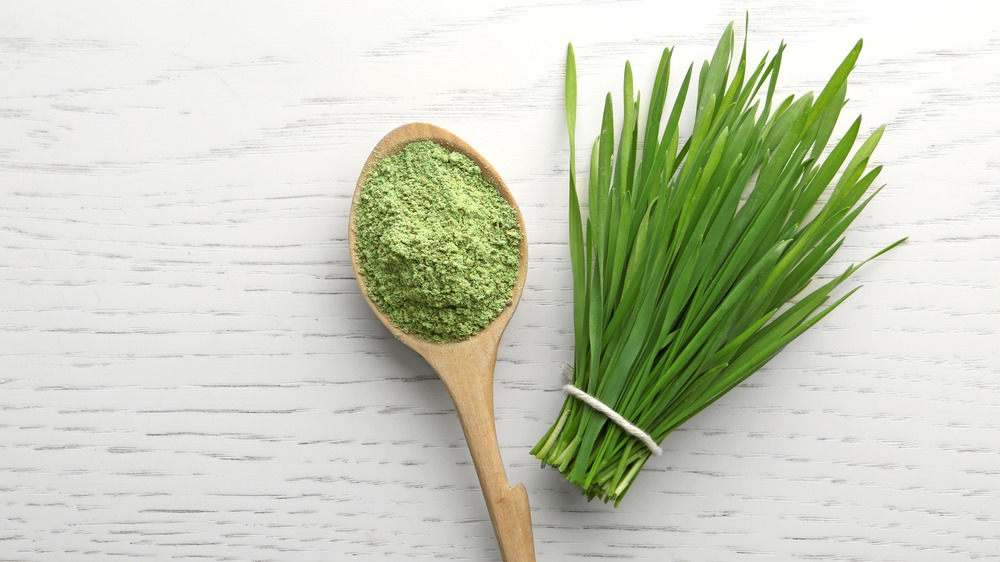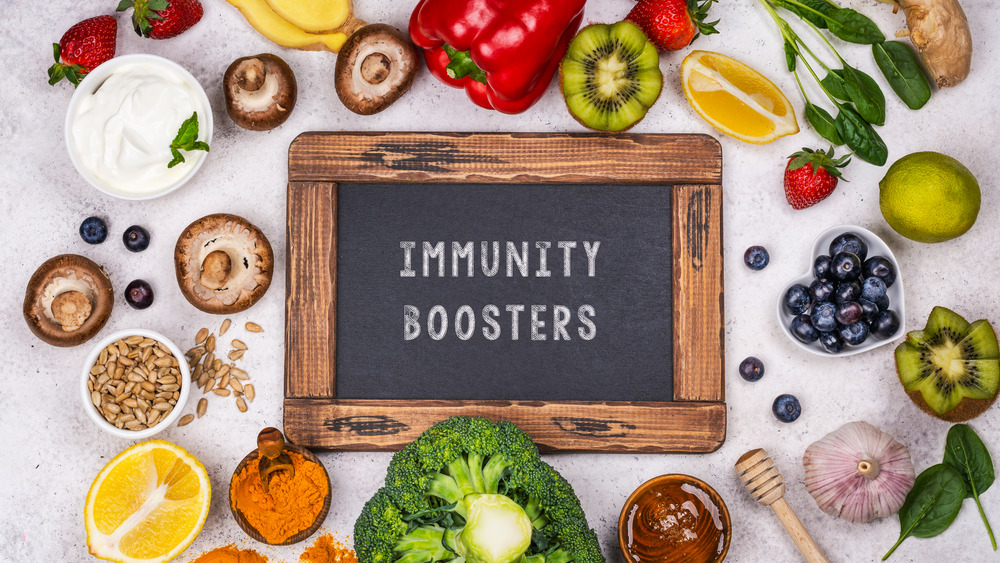Why You Should Think Twice Before Using Green Powders
When we were younger, fruits and veggies could be devoured by the spoonful during lunch or dinner (if we wanted dessert, that is). Today, these same servings can be found conveniently packed inside supplement bottles in powdered form, also known as "superfood powder" (via Good Housekeeping). While it may seem crazy and maybe just a tad ridiculous, health-conscious consumers have transformed what it means to "buy produce" — fueling the demand for fruit- and veggie-filled powder, including green powder (via Transparency Market Research).
The term "green powder" isn't very descriptive, is it? But, without sounding over-simplified, that's precisely what it is: Dietary supplements that can be mixed into a liquid, such as Kool-Aid or orange-flavored Tang, but with vegetables and probiotics (via Healthline). Although the ingredients included in each brand of green powder varies, common ingredients include leafy greens, antioxidant-rich fruits, grasses, and other vegetables (via WebMD). Sounds, uh... tasty, right?
Green powder isn't a suitable substitute for whole vegetables
Before you rush to the store to stock up on powdered goods, there are a few things you should know, including the fact that supplements (this includes green powder) are not regulated by the Food and Drug Administration (via the FDA). In fact, the only time the FDA will interfere with a supplement brand is when there are "multiple case reports" that connect a specific brand or supplement to an uncomfortable or adverse effect — or even death (via U.S. News). This means it's up to you to ensure that whatever powder you buy is safe to consume.
"The only ingredients listed on the product should be from recognizable plant foods, digestive enzymes, and probiotic strains," Lori Zanini, RD, and creator of For the Love of Diabetes, tells U.S. News.
The bottom line: The best way to get your daily recommended amount of fruits and vegetables is to eat them whole. According to the U.S. Department of Agriculture, this means eating 2.5 cups of vegetables and 2 cups of fruit each day. If you must use a supplement, be sure to consult your doctor first.

